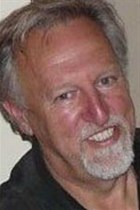Surely this was one of the most dramatic stories this century.
And the big global networks of CNN, Sky, the BBC, Al Jazeera, etc have massive global resources and experience. They have big-name reporters, researchers, stringers, experts on tap - and presumably the best contacts and connections in the world to bring us the story.
But what did we get? A single feed that was the same on every channel you watched - and no journalism of note. They managed to make the most dramatic story of the century almost boring.
OK, I know we got to see the shocking surveillance-video gunfight in the street after the attack on Charlie Hebdo, in which Muslim policeman Ahmed Merabet was coldly executed.
And we got to see the end of the two sieges - the storming of the printing plant and the relief of the Kosher store. And on Sunday we were treated to endless coverage of the memorial marches.
But that was about it - endless, semi-puffed-up-with-our-own-importance talking heads. Like most of us, I channel-surfed looking for news. I didn't find it.
Where was the list of the people assassinated? We were told the names of the main cartoonists only. Isn't that disrespectful? Were the others too unimportant to rate a mention? Where were the interviews - with the woman who escaped, after the killers told her "we don't shoot women, but wear a burka and study the Quran"; with family members; with eyewitnesses; with others who had narrow escapes?
It wasn't as though the material wasn't available. Just look at any of the major French and global newspapers. Look at what French TV managed.
Just one example: There is footage of Malek Marabet, the brother of the slain policeman, painfully talking about his brother. He says the Kouachis, who ignored his brother's pleas for mercy as he lay wounded on the street, may have shared his Algerian roots, but had nothing else in common. It's a great human interest story.
What about Clarissa Jean-Philippe, 27, the female police officer shot dead? She had apparently only been in the job for 15 days. French newspaper, Le Monde, reports that she was still in training. She was from the French Caribbean island of Martinique, where she left behind her family to move to Paris, according to Paris Match magazine. She was responding to a report of a traffic accident in the suburb of Montrouge when a suspect wearing a bulletproof vest shot her and drove off.
What a tragedy. What a human-interest story. Here's another: a street cleaner was reportedly shot when he stepped in to try and help the brand-new policewoman disarm the gunman. He is said to be in a serious condition in hospital. Who is he? Why has there been no recognition of his heroism?
Then there were the two incidents as the Kouachis tried to make their escape. They robbed a petrol station. What happened? Where were the interviews? Who was involved? The next day they apparently hijacked a car belonging to a woman, they drove into the printing works where they had coffee with the owner, let him and another person go and entered the siege not knowing that another man was hiding in the office.
This is the stuff of journalism. You track those people down. You interview them. You tell their stories. They were mainly available and happy to talk. Killer, Chérif Kouachi, even gave French TV an interview moments before he was shot dead, claiming: "We are defenders of the Prophet... We took vengeance."
Amedy Coulibaly, the Kosher supermarket killer, also gave an interview claiming he was working for Isis and "in synchronisation" with the Kouachi brothers. They were to attack Charlie Hebdo. He was to attack the police. He called France's BFMTV and told them that four people were already dead and that Jews were a legitimate target in revenge for the deaths of Muslims in Palestine.
Did you see any of this on any of the global networks that you were watching?
This is journalism 101. When a big story breaks, you get as many resources on the ground as you can and you go in search of the news. It's what you do - and I am not even mentioning the many, many things which they simply got wrong; for example that alleged female accomplice, Hayat Boumeddiene, was inside the Kosher store when it transpired later that she was not even in the country.
Finally, there is the debate about whether we should have seen the offending cartoons. Most news media, and certainly all the big networks, have elected not to show them again. Yet, I heard at least one British commentator argue that they have now become the story and that we should be reminded what was seen to be so anti-Muslim or anti-Islamic that people would kill, supposedly in defence of their religion.
Are we all comfortably proclaiming Je Suis Charlie, but simply too scared to do what the magazine did - while professing that we are defending press freedom and freedom of expression?
Charlie Hebdo, perhaps inevitably, has a new "Prophet" cartoon. It shows a bearded man in a white turban with a tear streaming down his cheek, and holding a sign reading "Je suis Charlie" ("I am Charlie"). Overhead is the phrase: "Tout est Pardonne" ("All is Forgiven"), which surely means the Prophet is forgiving the cartoonists for lampooning him.
I am reminded that no less a personage than Yasser Arafat said: "Having a war about religion is like having a fight over who has the best imaginary friend."
There was some great journalism during the Paris atrocities. It just wasn't on any of the TV stations I was watching.
